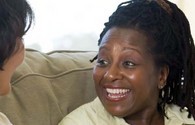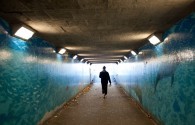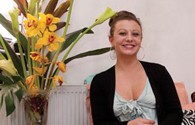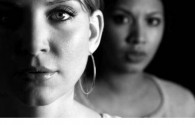
Theme
Prevention and recovery from domestic abuse and sexual violence
This theme explores the issues surrounding domestic abuse and sexual violence for women who are homeless or at risk of homelessness and is being led by Expert Group member Davina James-Hanman, Director, AVA (Against Violence and Abuse). Read the Theme Round-Up here.
Please post your submissions, see what others have submitted, and join in the discussion.
Davina says:
Imagine if a violent criminal had the key to your front door. This is what – at some point in their lives – one in four women in the UK will experience so it’s hardly surprising that domestic abuse is a key cause of women’s homelessness. Perhaps less well known is the contribution sexual violence can make to homelessness, whether this be girls leaving home because of sexual abuse in the family or rape victims unable to continue living in the same area as their rapist.
Women fleeing domestic violence, if unable to access refuges, can end up sleeping rough, in hidden homelessness situations or in general homelessness provision. Abuse can also continue throughout women’s homelessness experience in accommodation projects or between couples living on the streets. For those escaping sexual violence, unless it occurred within a domestic abuse context, their housing options are more limited. Women in insecure accommodation are also more vulnerable to sexual exploitation.
One element of this Rebuilding Shattered Lives campaign is to raise awareness of the need for homelessness and housing providers to work more closely with domestic and sexual violence services to ensure that they are providing appropriate support to women in these circumstances. Of course, accommodation is rarely the only need that women have when escaping domestic or sexual abuse. There are often on-going legal cases in both the criminal and family courts. Children are often traumatised and need specialist support, women’s confidence and self-esteem is often damaged and their destroyed capacity to trust has a profound impact on their ability to rebuild a new life.
Even reaching the decision to leave an abusive relationship can take a long time. The question of whether to stay or leave any relationship is a difficult and complex one, irrespective of the presence of abuse and it is unlikely to be a sudden decision.
There’s been a lot of work on domestic abuse and sexual violence in the past two decades but the homicide rate – two women a week – remains stubbornly stable so clearly we have a lot still to learn. I look forward to hearing about new and emerging practice and urge you to share your good practice and post a submission.
Read more from Davina about these issues on her blog.
Join us by showcasing your best practice and innovations
We particularly want to hear about:
- Access to refuges/appropriate accommodation for women with complex needs fleeing domestic or sexual abuse
- Services which prevent homelessness for domestic and sexual violence victims
- Multi agency working for homeless women experiencing domestic abuse and sexual violence and exploitation
- Services for women with no recourse to public funds
- Services which support women who have been affected by violence, for example when rough sleeping
If you have already joined the campaign, please log in to submit evidence. If you are not already a member, please click here to register. Please submit your contributions by 31 October 2012.
See a video from Davina explaining more about why she’s involved with the Rebuilding Shattered Lives campaign.
Theme started on: 31 Aug 2012
30 Submissions
The topic ‘Prevention and recovery from domestic abuse and sexual violence’ is closed to new replies.
Internet highlights
- UK Online Casinos
- Non Gamstop Casinos UK
- Nouveaux Casinos En Ligne
- Casinos Not On Gamstop
- Casinos Not On Gamstop
- Casino Sites Not On Gamstop
- Casino Sites Not On Gamstop
- Casino En Ligne
- Non Gamstop Casino Sites UK
- Fastest Payout Online Casino
- UK Online Casinos Not On Gamstop
- Non Gamstop Casino
- Casino Online Non Aams
- Casino Online Sin Licencia España
- Casinos Sin KYC
- Reputable Non Gamstop Casinos
- Casino Sites UK
- Non Gamstop Casino UK
- Sites Not On Gamstop
- UK Casinos Not On Gamstop
- Sites Not On Gamstop
- Sites Not On Gamstop
- Lista Casino Non Aams
- Casinos Not On Gamstop
- Casinos Not On Gamstop
- Casino Non Aams
- Meilleur Site Casino En Ligne Belgique
- Meilleur Casino En Ligne Belgique
- Migliori Casino Online
- Casino Visa
- Sites De Paris Sportifs
- คาสิโนคริปโตไทย
- 카지노 사이트 추천
- Bookmaker Non Aams
- Meilleur Casino En Ligne
- Casino Bitcoin
- Casino En Ligne
- Meilleur Casino En Ligne
- Casino Crypto



